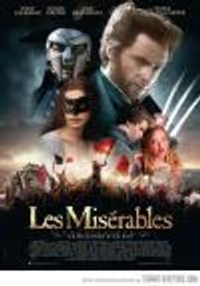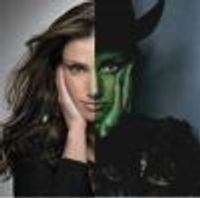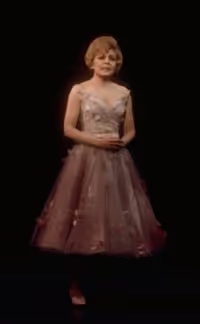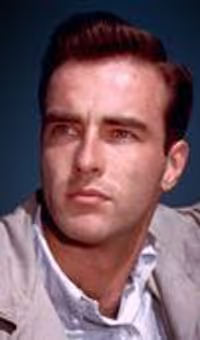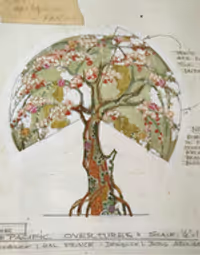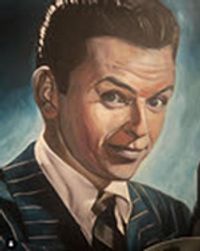Top Ten Greatest Composers of Musical Theater
After Eight
Broadway Legend Joined: 6/5/09
#100Top Ten Greatest Composers of Musical Theater
Posted: 1/27/11 at 9:55pm
Jason,
I'm sorry that our exchanges never seem to end. What a bore this must be for the other readers of this thread. I'm sorry this thread has devolved into this.
I wish too that you would actually read what I write and not put words in my mouth. You say I denigrate Sondheim. Well, I didn't put him in my top 10 list. That does not equate to denigration. That would mean every person omitted from every top 10 list, including yours, would be similarly "denigrated." I said I did not care for much of his work. And I don't. That's not denigration. I actually
do like some of his work. I feel that other composers' works far surpass his.That's no more denigration than PJ's statement that Sondheim surpasses
everyone else represents a denigration of everyone else.
I never said, nor do I feel, that those who think Sondheim the greatest
composer ever are crazy, stupid, or out of their minds. If that's what they feel, fine. My objection, as I've stated like 1,632 times, and please, why can't you listen or understand this, is to those who try to force people into agreeing with this opinion through intimidation, ridicule, or snobism.
I never said that Paul was "out of his mind" for putting Sondheim at the
top of his list. I felt he was being offensive with his comment, and I wasn't going to go on reading what he had to say. And I didn't. I'm glad you found it worthwhile, though.
Now, since you keep insisting that I "explain" myself, and not wishing to stir up another hornets' nest, I'll simply say that his work is too.... "sulphurous,"
and leave it at that. I hope that will suffice for you, but, somehow I expect it will not.
In any case, Jason, we've now hurled brickbats at one another for quite a while. Despite your having flunked me, I think nonetheless that you're a good egg, and probably a great teacher.
So I'd like to end this as friends, and allow this thread to go back to what it was intended to be.
#101Top Ten Greatest Composers of Musical Theater
Posted: 1/27/11 at 10:07pm
All right, After Eight, truce.
But Sondheim's still awesome :)
#102Top Ten Greatest Composers of Musical Theater
Posted: 1/27/11 at 10:26pm
I'm doing American composers, which leaves out Boubil & Schoenberg, Lloyd Webber, etc.
Stephen Sondheim
Rodgers & Hammerstein
Jerry Herman
Cole Porter
Irving Berlin
Frank Loesser
Lerner & Loewe
Kander & Ebb
Jason Robert Brown
Jule Stine
Leonard Bernstein
(ok thats 11)
#103Top Ten Greatest Composers of Musical Theater
Posted: 1/27/11 at 10:53pm
Someone mentioned a few pages backc that we should consider ourselves teachers, grading the accomplishments.
If so, what is the rubric? What criteria are we to judge this on? This in itself may be an interesting question.
#104Top Ten Greatest Composers of Musical Theater
Posted: 1/27/11 at 10:53pm
PJ, what does Sondheim say about Rodgers? Rodgers would be in the very top three or four of my ranking.
There are no direct references in the song. I always thought that the Rodgers was the model in Sondheim's mind for the composer who turns into so much of a corporation that the composing becomes secondary to the dealmaking.
After Eight
Broadway Legend Joined: 6/5/09
#105Top Ten Greatest Composers of Musical Theater
Posted: 1/27/11 at 11:08pm
Re: Sondheim and Rodgers
Didn't Sondheim make a comment on the order of Rodgers having infinite genius but limited soul? I don't remember the exact quote. Perhaps one of his fans would know.
#106Top Ten Greatest Composers of Musical Theater
Posted: 1/28/11 at 4:12am
darquegk, you do raise a good question. How are we judging to determine the "greatest composers of musical theater?"
After reading your post, I first decided I should jump right in with a list.
Then I thought, "No, so many posters have mentioned their own criteria that those thoughts should speak for themselves."
But then I thought, "Is that a copout?" So....
First, let me draw a distinction between eligibility and greatness. You are asking about the latter. For now, I am putting aside the issue of how a composer gets to be considered (Are the British in or out? Are operetta composers in or out? Do you have to write more than one show? Do you have to write three shows? Etc.) That's not what I will address for now.
So then, what makes a musical theater composer "great?"
I don't have the definitive answer. I would like to hear what others think. But here's what I had in mind:
The greatest composers of musical theater are the ones who have the demonstrated ability to write memorable, meaningful songs, ballets, underscoring or other musical moments, ones which further the story, excite, move and entertain audiences, show off stars to their best advantage, or other appropriate musical theater goals. They show skill at writing for character and dramatic action, use melody, harmony, rhythm and timbre to join with lyrics and movement in fresh or inevitable ways, and their music is admired, studied, emulated and performed by those who encounter it. Some have demonstrated a great variety of styles over their body of work, and others have immediately identifiable personal style. Some have created sub-genres of the art form, and others have furthered or perfected them.
Like that. ![]()
#107Top Ten Greatest Composers of Musical Theater
Posted: 4/5/14 at 5:43pm
mine are:
Stephen Sondheim
Alan Menken
Andrew Lloyd Webber
Stephen Schwartz
Jule Styne
John Kander & Fred Ebb
Richard Rodgers
Claude-Michel Schonberg
Jonathan Larson
Damon Intrabartolo
Marvin Hamlisch
Marc Shaiman & Scott Wittman
Cole Porter
Charles Strouse
Robert Lopez
Henry Krieger
Frank Wildhorn
Tom Kitt
Elton John
Jeanine Tesori
Laurence O'Keefe
#108Top Ten Greatest Composers of Musical Theater
Posted: 4/5/14 at 6:17pm
George Gershwin
Kurt Weill
Jule Stein
Stephen Sondheim
Jerome Kern
Richard Rodgers
Irving Berlin
John Kander
Cole Porter
Cy Coleman
#109Top Ten Greatest Composers of Musical Theater
Posted: 4/5/14 at 10:04pm
Before I post my list, I would just like to remind everyone that this is a matter of OPINION. I simply do not understand arguing if no one has any intention of changing their mind. If you have a question for someone that you genuinely want answered, simply be polite and ask them. And if you do not agree with someone else, no one is asking you to. Just be respectful and this board will be a more pleasurable experience for everyone involved. This is, of course, my opinion.
1) Stephen Sondheim - He revolutionized Musical Theater, and although many would argue for the worst, I think it was a miracle. His shows rank among my favorite, and I can always hum his tunes, regardless of the old cliche. Sunday In the Park With George remains the only show that has moved me to tears. He composed my favorite show, Follies, and wrote such gorgeous works as Passion. For me, he is the greatest composer, and I can listen to The Frogs and be more content than other composer's best works.
2) Jerry Herman - His shows remain what has kept the "classic" Broadway show alive. Hello, Dolly!, Dear World, and La Cage Aux Folles show his ability to write great tunes and showstopping numbers. How can you not feel the urge to rise when Dolly walks down that staircase? Mack and Mabel show that he can write a gorgeous torch song - "Time Heals Everything". When you need to feel happy, listen to his work.
3) Jule Styne - He had critical and artistic success with Gypsy and Funny Girl. These two female vehicles show off his score right, although one's book is far superior to the other. He wrote such great songs, some of which are still unknown to the major public, such as "The Music That Makes Me Dance", "Who Are You Now?", and "Cornet Man". He is the type of composer that lets you feel the character in the music.
4) John Kander - He continues to amaze me. Scottsboro Boys and Chicago bring such great pleasure and pain. No matter how much of a flop, The Rink features such a great score that shows off two divas. He has a great eye for mixing comic numbers with pathos.
5) Leonard Bernstein - West Side Story brought a new feel to Broadway. He could write anything, be it arias (Glitter and Be Gay), battling duets (A Boy Like That / I Have A Love), show stoppers (Duet For One), or gorgeous choral work (Make Our Garden Grow).
6) Richard Rodgers - He is what brought Broadway to what it was. His scores differ from show to show, but you can always tell it's him. Compare Oklahoma! to The King and I, and hear the difference in them. His famous "uplifting" songs include "Something Wonderful", "You'll Never Walk Alone", and "Climb Ev'ry Mountain" He took on serious subjects with Hammerstein and comic ones with Hart. He was the music of two generations of theater.
7) Irving Berlin - He proved you don't always have to make it complicated. By keeping it simple, his songs remain standards today. Who doesn't feel for the poor soul singing "Suppertime"? His work remains from a time where theater was the popular music of the day.
![]() Kurt Weill - His gorgeous and eerie music quality instantly alert you to his work. from The Threepenny Opera to One Touch Of Venus, his music remains distinctly his. He wrote unique and interesting works in the pre-Oklahoma! era, such as intellectual Lady In The Dark. His writing soars in these works, and you marvel how he can write shows about poverty and desperation while still writing about statues coming to life.
Kurt Weill - His gorgeous and eerie music quality instantly alert you to his work. from The Threepenny Opera to One Touch Of Venus, his music remains distinctly his. He wrote unique and interesting works in the pre-Oklahoma! era, such as intellectual Lady In The Dark. His writing soars in these works, and you marvel how he can write shows about poverty and desperation while still writing about statues coming to life.
9) Jeanine Tesori - Although only having three notable works, I include her because of how much Caroine, or Change affected me. Only having heard the score, I love her distinct blending of styles, from soul, to R&B, and a heartbreaking lament that rivals "Rose's Turn". The music takes me to various places, and I always know I'm alive when I hear her distinct melodies.
10) Frank Loesser - The Most Happy Fella may very well be the only perfect three-act musical. A gorgeous score, switching from operatic to musical theater, shows off how he blends production numbers with arias. He can write comedy and drama, and just listen to the music to "Ooh! My Feet!" - you can HEAR Cleo's frustration in the music.
Honorable Mentions Include George Gershwin, Cole Porter, and Marc Shaiman.
jemjeb2
Featured Actor Joined: 6/28/05
#110Top Ten Greatest Composers of Musical Theater
Posted: 4/5/14 at 10:19pm
Jeez - calm down Growl - if you don't like the topic, ignore the thread. What are you a cop or something? The dude was just suggesting a rather benign survey of opinion. Is the rudeness and aggressive behavior necessary?
And is the suggestion that younger theatre enthusiasts might be less familisr with composers of decades back really that offensive?
#111Top Ten Greatest Composers of Musical Theater
Posted: 4/5/14 at 10:28pm
OMGlob, I can't believe I left off Loesser! Boy, this thread takes me back. Revised list, composers only:
Sondheim
Rodgers
Loesser
Arlen
Bernstein
Styne
Porter
Bart
Kander
Herman
Finn is next for Romance in Hard Times alone. Berlin after.
#112Top Ten Greatest Composers of Musical Theater
Posted: 4/5/14 at 10:33pmKern at 13.
#113Top Ten Greatest Composers of Musical Theater
Posted: 4/5/14 at 11:06pm
There should be a sister thread for the Top Ten Greatest Lyricists of Musical Theatre.
COMPOSERS:
1. George Gershwin
2. Richard Rodgers
3. Irving Berlin
4. Stephen Sondheim
5. Jerome Kern
6. Leonard Bernstein
7. Cole Porter
8. Frank Loesser
9. Jules Styne
10. Jerry Herman
LYRICISTS:
1. Stephen Sondheim
2. Oscar Hammerstein II
3. Lorenz Hart
4. Cole Porter
5. Ira Gershwin
6. Alan Jay Lerner
7. Dorothy Fields
8. Jerry Herman
9. Tim Rice
10. Stephen Schwartz
There are a few other composers and lyricists who dabbled in a Broadway show or two, but made their notable successes either in Hollywood or on the pop charts. I didn't count them here as the being the "greatest" in the theatre, in that case.
blocked: logan2, Diamonds3, Hamilton22
#114Top Ten Greatest Composers of Musical Theater
Posted: 5/22/14 at 2:54am
Here are my ten favourites, and the shows for which they are my favourites.
1. Adam Guettel, for all of his works, but most of all his brilliant folk opera Floyd Collins
2. Stephen Sondheim, for Assassins and Company, though so much more of his work is iconic.
3. Michael John LaChiusa, for Giant, which I seriously would put up with the best scores written in the last two decades.
4. Jeanine Tesori, for Fun Home, an innovative, important, and emotionally devastating work of musical theatre. I'm also a major fan of her sophisticated work on Violet.
5. Jason Robert Brown, for Parade, his only score that feels distinctly like musical theatre. The courtroom section alone packs a massive wallop.
6. Joshua Schmidt, for A Minister's Wife, a musical based on Shaw's Candida that features some seriously accomplished music. We need more of this guy. He's only got two shows out there.
7. Kander and Ebb, for Cabaret, their most affecting work.
8. Tom Kitt and Brian Yorkey, for Next to Normal, one of the most significant and important musicals of the last decade.
9. Ahrens and Flaherty, for Ragtime, a gargantuan and beautiful piece of musical theatre.
10. Michael Korie and Scott Frankel, for the stunning and timeless Grey Gardens.
#115Top Ten Greatest Composers of Musical Theater
Posted: 5/22/14 at 7:08pm
1. Gershwin
2. Bernstein
3. Rodgers
4. Sondheim
5. Porter
6. Lowe
7. Kander
8. Loesser
9. Cy Coleman
10. Burton Lane
Honorable mention: Flaherty, Bock
follies85
Understudy Joined: 12/15/07
#116Top Ten Greatest Composers of Musical Theater
Posted: 5/23/14 at 4:38pm
In no particular order:
Composers:
-Stephen Sondheim
-Jule Styne
-Cy Coleman
-John Kander
-Frank Loesser
-Richard Rodgers
-George Gershwin
-Frederick Loewe
-Jerry Herman
-Leonard Bernstein
Lyricists:
-Stephen Sondheim
-Betty Comden & Adolph Green
-E.Y. "Yip" Harburg
-Alan Jay Lerner
-Cole Porter
-Carolyn Leigh
-Dorothy Fields
-Frank Loesser
-Oscar Hammerstein II
-Jerry Herman
broadwaysfguy
Broadway Legend Joined: 5/27/14
#117Top Ten Greatest Composers of Musical Theater
Posted: 12/25/15 at 11:46am
PalJoey said: "Like Tommasini, you never define "greatness" or "great," so people are free to submit their favorites as their idea of the "greatest." I took "great" to imply some aspiration to quality rather than simply success or likability, so my list is based on weighing my likes against both the reach and the grasp of the composer's body of work.
1. Stephen Sondheim
The "greatest," because, quite simply, his accomplishments far and away surpass all others. Even his failures, it has been said many times, are more interesting than others' successes. And those failures often seem less like failures with time, something that cannot be said of all others.
2. Leonard Bernstein
Had he gone on writing for the musical theater rather than devoting his post-West Side life to conducting, I am quite sure he would have been #1.
3. George Gershwin
And had he too lived on and gone on writing for the musical theater, I am sure he would have surpassed Sondheim and Bernstein. The accomplishment and aspiration of Porgy and Bess alone puts Gershwin at the top, but his scores for his 1920s and 1930s musical-comedies injected a level of musicianship that set a revolutionary bar that inspired other composers to be greater.
4. Richard Rodgers
In terms of his effect on the general population, he ought to be #1, but see Sondheim's "Franklin Shepard, Inc." for why he is not.
5. Jerome Kern
Not just for Show Boat, although that would have been enough. Like Gershwin's early scores, Kern's 1920s Princess Theater musical-comedies contained melodies that surpassed the standards of the day and brought wit and intelligence to show music.
6. Irving Berlin
An immigrant Jew for whom English was a second language...yet he took what George M. Cohan and Stephen Foster had established as "American music" and wrote show after show that continued to re-define what American music sounded like. That he did that without being able to play piano--AND writing the lyrics too--is literally mind-boggling.
7. Cole Porter
Just as Kern brought wit and intelligence to musical comedy, Porter brought sex and sophistication. He tried toward the end of his life to keep up with the artistic aspirations of his colleagues, and with Kiss Me, Kate, he created a crown jewel that will endure.
8. Jerry Herman
How could anyone leave him off the list? His relentless optimism and high spirits are irresistible, and he almost single-handedly kept alive the spirit of "musical comedy" while all his colleagues were moving into "musical theater." He loses points for not aspiring higher...but aren't we kinda glad he never tried? The results would probably have been, to quote Gloria Upson, GHASTLY.
9. Frank Loesser
For sheer "world-building," Loesser earns a place for the gangster world of Guys and Dolls and the corporate world of How to Succeed. And he gets aspiration points for Most Happy Fella. But he also deserves a place for the mentoring and inspiring he did for other other composers.
10. I award this position to (in alphabetical order): Harold Arlen and Marc Blitzstein and Jerry Bock and Cy Coleman and John Kander and Frederick Loewe and Harold Rome and Charles Strouse and Jule Styne and Kurt Weill and Maury Yeston.
Oops--one more!
11. Marc Shaiman
In case he's reading this."
Had to bump this fantastic thread which I just discovered. I think this was one of the best threads I've read on the site.
Added Pal Joey's assessment, which is very well written and thought through...I have a few differences and also like those who list lyricists separately just to think about it more clearly. In no order:
Composers:
Stephen Sondheim
George Gershwin
Richard Rodgers
Cole Porter
Jerome Kern
Frank Loesser
Frederick Loewe
Irving Berlin
John Kander
Leonard Bernstein
Lyricists:
Stephen Sondheim
Cole Porter
Oscar Hammerstein
Ira Gershwin
Lorenz Hart
Jerry Herman
Alan Jay Learner
Frank Loesser
Fred Ebb
Jerome Kern
Limiting these to 10 is really tough, and I so want to add a number of the current generations most talented contributors to musical theatre....
#118Top Ten Greatest Composers of Musical Theater
Posted: 12/28/15 at 4:17pm
Borrowed from Gaveston on another thread:
"Hammerstein was a man of infinite soul but finite talent; Rodgers was a man of infinite talent but finite soul."
A quote worthy of such a great lyricist, but I wonder what Rodgers would have said about Sondheim.
Like Pal Joey, I have often wondered what George Gershwin would have accomplished had he lived. "Rhapsody in Blue" at age 28, Porgy and Bess at age 35. I also think that it was a great disappointment that Bernstein did not write at least a couple of more musicals. Maybe he thought that even he could not top West Side Story. I'm pretty sure that he will be remembered fifty years from now for WSS and the symphonic dances derived from it far more than for his classical Mass.
With respect to the Sondheim debate, I believe that the music and the composers of the music that you worship most throughout your life is the music that you were exposed to in your formative years say from preteen to twenty one. That left my mother in the "Golden Age" and, since she played the OBCA vinyls all around the house when I was a kid, I believed that these musicals were Broadway and these musicals alone.
One night my father, who was always trying to please my mother, usually without success, came home with the cast album from Company. He expected credit for this since it was the Tony-winning score of a Broadway musical. With deep suspicion, I put the disc on the turntable and about the first sounds to come out of it were, "Bobby Baby, Bobby Boobie." This was not an opening number remotely like "Oh What a Beautiful Morning" or "The Sound of Music." After two plays the record went back into the cabinet, never to see a turntable again.
I had a period when I was deriding Sondheim for writing a half dozen or more Broadway shows and producing only one song recognizable to the American public at large, "Send In the Clowns." But I had never even bothered to listen to much of his music. On a Nancy LaMott CD I heard this very moving intertwining of "Not a Day Goes By" and "Kept on Growing," accompanied by a mournful cellist. It was a very moving track and I just had to deal with the fact that it had been written by Sondheim.Similar incidents happened. The song "What More Do I Need" on Kelli O'Hara's last album was another one of those happy surprises.Not just good lyrics, but a bouncy melody.
So I think that I can now say that Sondheim would make my top ten list as a composer, but near the bottom still. As a lyricist, behind his mentor Oscar and then he would have to fight it out with the the very different witty lyricists Lary Hart and Cole Porter.
broadwaysfguy
Broadway Legend Joined: 5/27/14
#119Top Ten Greatest Composers of Musical Theater
Posted: 12/28/15 at 7:34pm
hi ol blue eyes
thanks for your very honest discussion about your evolution with Sondheim. Im glad to read it wasnt just me!!!
I also grew up with a mom listening constantly to rodgers & hammerstein, lerner and loewe, Loesser, and Jerry Herman.
She never got on the sondheim train, and so i didnt hear any sondheim in my childhood, except for "where are the clowns?" on the radio
I also tried listening years later to some Sondheim cast recordings, which for me was kinda like trying to appreciate shakespeare by reading it vs watching it.
I became a Sondheim fan once I saw his works performed live, and now consider A Little Night Music, Company, Merrily We Roll Along, and Into the Woods among my favorite musicals (Sweeneys great but i dont like the story much, and Follies is also great),
Also hearing others interpret Sondheim songs as standalone works also had a huge influence on me.
My playlist of favorite sondheim songs now outnumbers my list of favorite rodgers & hammerstein songs.
I didn't try to rank my 10 because its almost futile to compare true genius from very different eras. There are days i want to listen to Cole, and days I want to listen to sondheim, and days I want to listen to R&H.
I'm grateful for all the truly great composers and lyricists of all time, and rooting for the current generation (Lopez, Miranda, Brown, Chiusa, Finn, Tesori, Kitt & Yorkey etc) to build an enduring legacy as well I'll be listening to 40 years from now....
Videos


